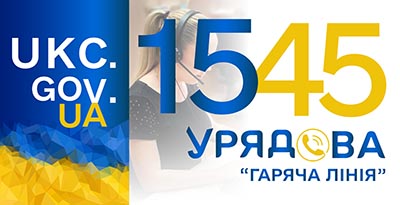On September 10, 2024, the War Museum hosted an international scientific and practical conference, "The Ukrainian-Polish Borderland: History, Memory, Linguistic and Cultural Heritage, and Current Challenges". It was timed to coincide with the 80th anniversary of the deportation of autochthonous Ukrainians from Lemkivshchyna (Lemko Region), Nadsyannya, Kholmshchyna, Southern Podlachia, Lubachivshchyna, and Western Boikivshchyna in 1944-1946, 1947, and 1951.
The event was organized by the Ukrainian Institute of National Remembrance and the Kyiv Association "LemKyiv," in addition to the War Museum, with support from the Center for Ukrainian-Polish-Slovak Borderland Studies at the Ukrainian Catholic University and the National Museum of Folk Architecture and Life of Ukraine.
Opening the conference, Hanna Baikenich, PhD in History, from the UINP noted: "The most important thing we have to talk about today is not only facts and dates but also ideas and memory. We need to understand that memory can be different. I want our memory of our past to make us stronger and more resilient during the current russian-Ukrainian war."
Vasyl Petryk from the Ministry of Culture and Strategic Communications drew parallels between the events of 80 years ago and the current war: "Starting in 2014, the descendants of deported people found themselves under occupation or the threat of occupation again and had to go into the unknown, in the opposite direction, from east to west. The culture of those deported Ukrainians from Poland was inextricably linked to that land, to the historical memory that came directly from their lives, economic system, and cultural traditions. This problem concerns all of us because, as a nation, we have to build our skeleton; without this cultural consciousness, it will be incomplete, like an amputated arm. I would like us to form a holistic vision during the conference that existed before 1944, which we lost as a result of these waves of deportations."
Rostyslav Karandieiev, First Deputy Minister of Culture and Strategic Communications, also spoke about the modern dimension:
"The occupiers, having occupied the territory of our country, are also taking actions to resettle and transport people. They are not only moving Ukrainian children but also their citizens in an attempt to diminish Ukrainian presence and identity. The issue of identity has always been important for dictatorial and non-democratic regimes because having a unique identity, especially a national one, often leads to resistance, opposition, and uprisings, ultimately leading to the overthrow of these regimes.
Apparently, the communist regime, both Soviet and Polish, which established its dominance in the borderlands of Ukraine and Poland, had the same narratives at that time."
Oleh Kucheriavyi, Deputy Director General of the War Museum, thanked the co-organizers for choosing the Museum as the conference venue and expressed hope that scientific research into the complicated history of Polish-Ukrainian relations would end political insinuations.
Volodymyr Tylishchak, Deputy Director of the UINP, and Kateryna Chaplyk, founder of the Kyiv Association "LemKyiv," also spoke on behalf of the co-organizers.
Vitaliy Lyaska, director of the Center for Ukrainian-Polish-Slovak Borderland Studies at the Ukrainian Catholic University and editor-in-chief of the Local History publication, emphasized:
"When we start talking about such a crucial topic, we usually pay attention to important things, but we also need to understand that in the public discourse of Ukraine and our society, the deportation of 1944-1946 remains a regional or local problem.
It needs to be overcome and brought to the national level, and we need to discuss it more. The first way is legal: we must grant the status of deportees, and this applies not only to those half a million Ukrainians who were deported to the Ukrainian SSR. This is a problem of descendants, several million people, and we need to speak out loudly about it.
Historical research is crucial; we are witnessing the loss of our memory: people are leaving and under occupation, causing a decline in historical memory. This should be a top priority. The third crucial component is the people themselves. While we can discuss geopolitics and the drawing of borders by foreign states, we must not forget about half a million people and their several million descendants, who may not be documented in books or textbooks. Their pain and tragedy form a large part of cyclical events. By incorporating this topic into the all-Ukrainian history of the twentieth century, we can establish a comprehensive narrative and learn more about Ukrainians outside of Ukraine, including those in lands such as Poland, Slovakia, and Romania. We are losing culture and architecture in Zakerzonia, and only collaborating with many environments will allow us to preserve what remains."
The conference was split into two parts: historical and ethnographic. The speakers presented in the historical program covered a wide range of topics, from conceptual and historiographical issues related to the Polish-Ukrainian border as a frontier to practical work with sources on the problem of deportation processes. The ethnographic program emphasized the preservation of knowledge about the traditional Lemko culture and the formation of a culture of coexistence of new micro-communities. The highlights of the conference were the presentation of the popular science publication Lemkivshchyna Through the Ages (compiled by Dmytro Stepovyk and Mykhailo Matsievsky), as well as an emotional speech by Vasyl Demchak about the fate of Lemko settlements in Luhansk region, which in 2014 joined the defense of Luhansk Airport and suffered from the terror of the "luhansk people’s republic" militants.
The conference participants ensured a wide geographical representation of scientific, educational, and other institutions: Kyiv, Lviv, Uzhhorod, Ivano-Frankivsk, Ternopil, Zhytomyr, Izmail, and Zielona Góra (Poland).
A collection of scientific articles will be published based on the conference reports.
Follow the link to watch the conference recording: https://www.youtube.com/watch?v=aNthK6GjGPs&feature=youtu.be
